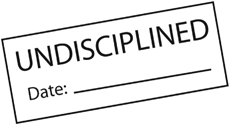In his 2000 best seller Bowling Alone: The Collapse and Revival of American Civic Community, Robert Putnam analyzed the links between social capital and civic engagement. Lamenting the decline of “civic America,” he called for a Tocquevillean renewal of voluntary association in the United States. In American Grace, Putnam and coauthor David Campbell—who also helped with the preparation of Bowling Alone—return to the analysis of American civil society, focusing their attention on America's changing religious landscape and its implications for democracy. Their basic argument is that while the United States is religiously diverse and pluralistic to a profound degree, and while in recent years it has witnessed growing religious polarization, it has also succeeded in muting religious tensions and hostilities. As they conclude: “How has America solved the puzzle of religious pluralism—the coexistence of religious diversity and devotion? And how has it done so in the wake of growing religious polarization? By creating a web of interlocking personal relationships among people of many different faiths. This is America's grace” (p. 550).
Given the importance of religion in American life and the influence of Putnam's broad agenda on much current social science research on social capital and civic engagement, we have decided to organize a symposium around the book, centered on three questions: 1) How is American Grace related to Putnam's earlier work, particularly Bowling Alone, and what are the implications of the continuities and/or discontinuities between these works? 2) What kind of a work of political science is American Grace, and how does it compare to other important recent work dealing with religion and politics in the United States? 3) What are the strengths and weaknesses of Putnam and Campbell's account of “how religion divides and unites us,” and what is the best way of thinking about the contemporary significance of religion and politics in the United States and about the ways that the religious landscape challenges U.S. politics and U.S. political science?
